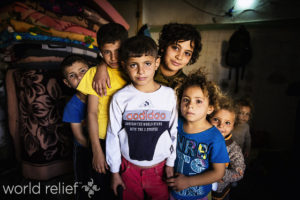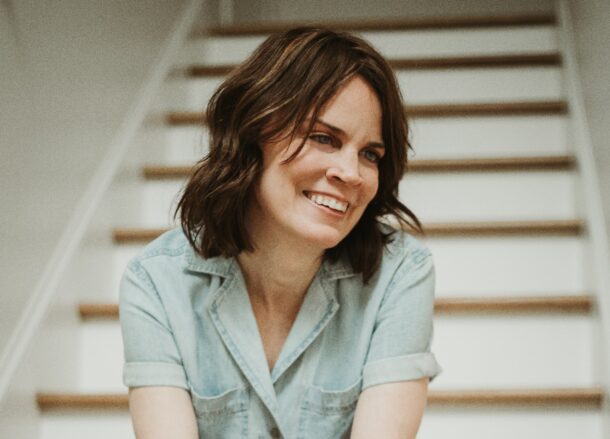(For more info, please visit worldrelief.de)
“Please, I need work. I have two daughters and my husband is in the camp.”
The WhatsApp message was followed by a picture of two beautiful toddlers. The mom’s CV showed she graduated with a B.A. in Education from Damascus University.
“I have no work to offer. I am so sorry. But if I hear of anything, I will let you know.”
Jeannette lives 15km from the Syrian border in Mafraq, Jordan, where she works as a program manager for World Relief Germany. She first visited the country in 2014 to spend Christmas with Christian Iraqi refugees fleeing from ISIS. A few months later, she spent two weeks in informal camps in Turkey, bringing aid to Kurds and Syrians who had fled there from Kobani, Syria. She then made her way back to Jordan to work with Syrians from the rural areas of Dera’a and Homs. She’s been there ever since. She says she receives messages like this all the time.
“We run a program where, in exchange for volunteering, women qualify for a small monthly assistance, or volunteer stipend. But there are only so many spots. Once those spots fill up, I can’t take on more women.”
 Originally, World Relief tried to fund programs by partnering with local churches near the refugee camp, but a variety of issues made the effort ineffective. Instead, they decided to pilot a new initiative in which Syrian refugees would be trained to run the programs themselves. Jeannette is part of that initiative, overseeing about 30 volunteers – mostly women, with the exception of one male guard and two male Syrian university students.
Originally, World Relief tried to fund programs by partnering with local churches near the refugee camp, but a variety of issues made the effort ineffective. Instead, they decided to pilot a new initiative in which Syrian refugees would be trained to run the programs themselves. Jeannette is part of that initiative, overseeing about 30 volunteers – mostly women, with the exception of one male guard and two male Syrian university students.
The volunteers run health clubs for children, social support groups for women, and literacy support groups for all ages. In addition to running clubs, the volunteers assist in the identification and referral of medical, psychological, legal, and domestic violence cases to the UNHCR and partner organizations.
“The stipend means a lot, since one-third of the children in our clubs are fatherless or come from a single-parent household. The assistance is also the only reason some of the married women are allowed to leave their houses,” she added. “For some, it is the only chance they get to interact with other women once or twice a week.”
There is plenty of darkness in the work, especially in the frequent stories of husbands and sons disappearing at the border, teenage daughters given in expedient marriages, and the prevalence of rape, suicide, and domestic violence. Here, again, the program helps: “The stipend is the reason these stories reach us,” Jeannette says, “because the women are allowed to come out of the house and talk to us. Volunteering allows them an escape from the home environment and brings their pain into the light where we can deal with it together. I’d say about 50% of our volunteers have suffered, or are currently suffering from domestic violence. For the single girls involved, it allows us to intervene in situations where they will be married off to a Saudi to be his second wife.”
It can be hard not to focus on everything that’s wrong. “The desperation and pain I encounter on a daily basis is, most days, emotionally overwhelming,” she says. “There is so much anger, despair, and hopelessness in the air.”
But Jeannette is determined to do what she can. As she advocates and pushes for refugee and women’s rights in a predominantly Muslim country, she prays that her Syrian brothers and sisters will see the fierceness of God’s love for them reflected in her actions and efforts on their behalf.
“My Syrian friends know that on Wednesdays I fast for them, for the systems and customs that oppress them to be changed and broken. I carry a copy of Isaiah 58 with me to show them that the God I serve cares about social injustice. They ask me how long I will fast, and I tell them – until I see change. Until conditions improve. Until God responds.”


